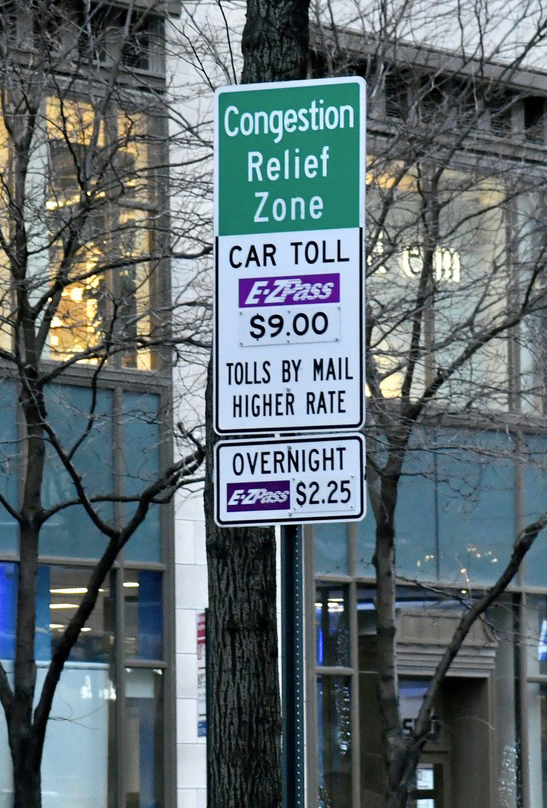The hearing was titled “The State of the Rail Workforce” and featured testimony from Batory, the president of the Association of American Railroads and union leaders. While labor was the focus of the hearing, it also gave members of congress a chance to inquire about some of the biggest issues facing railroading today.
At the onset of the hearing, Subcommittee on Railroads, Pipelines and Hazardous Materials Chairman Peter DeFazio, Democratic representative from Oregon, asked about job losses as a result of PSR and increasing train sizes. DeFazio said he has received reports of 15,000-foot freight trains through Oregon’s Willamette Valley and is worried about crossings being blocked in the communities he serves. DeFazio specifically asked if there are federal rules on the train lengths.
“There is no limit,” Batory said, adding that railroads tend to operate trains that can realistically get over the specific territory it’s operating on. That answer was unsatisfactory for DeFazio.
“What about the people in these communities? What about people who need to reach a hospital on the other side of the tracks?” DeFazio asked. “What about society?”
Batory went on to defend the implementation of PSR and said that scheduled railroading has been part of the industry since the beginning. “PSR is railroading 101,” he said.
One of the most contentious issues raised during the hearing was the FRA’s decision last month to withdraw an Obama administration proposal to require a certain number of people aboard all freight trains in the United States. At the time, Batory wrote that there was no data to support such a rule and that was a statement he returned to time and time again on Thursday.
“There are no facts to support a (crew size) rule,” Batory said.
“Then why did the FRA send me that rule?” demanded Rep. Stephen Lynch, Democrat from Massachusetts’ 9th congressional district.
“You will have to ask my predecessor,” Batory said.
Congress members also asked about the railroad industry’s progress in installing PTC. Batory said while freight railroads are ahead of the game, some commuter rail operators are not. He said he plans to meet with these operators in the coming months. He also said that he spends “25 to 40 percent of my time working with Positive Train Control.”
Batory also briefly mentioned efforts within the industry to use automated inspections, which he believes would make trains safer. Labor has been less enthusiastic about advances in automation, saying it will result in even more job losses.
“An automatic track inspection can find more defects than you or I can find looking through the windshield of a hi-rail truck,” Batory said. “It is in the best interest in the country and the people the railroad industry serves that we exploit this technology to its greatest potential.”















Mr. Batory obviously knows Jack about railroading it takes a “good Walker” close to an hour to walk a 7500 ft long train in average conditions. …This guy is probably paid off.
TYLER Thanks for your evaluation of Mr. Batory. That he knows nothing about railroading because he was an accountant.
May I remind you though that the late W. Graham Claytor was a naval officer and an attorney. He seemed to do pretty well at Southern and at Amtrak.
PTC is not fool proof. But neither is human nature.
Removing employees will, by definition, make the railroad safer because their are less employees around to get injured when something goes wrong. The real question is: will accidents increase. We have no data on this, only opinions that seem self-evident like “having a second person gives a check on the situation” or “a second person only brings distraction from the task at hand.” We need actual data.
For those who keep saying Batory is qualified and knows the industry he was an accountant who moved up through Conrail, the man has no ground experience and is a shill for the AAR and their members accounting departments….he’s full of it!
Regarding Mr Batory’s qualifications. The following from the allgov.com website.
Batory took his first job in 1971 as a traveling auditor in freight car accounting for the Detroit, Toledo and Ironton Railroad Company (DT&I). He rose through a series of white collar jobs at DT&I, including three years as administrative assistant to the vice-president of operations, assistant engineer of the track system in Flat Rock, Michigan, industrial engineer manager, and four years as director of material procurement and planning. After the Grand Trunk Western Railway (GTW) bought DT&I in 1980, Batory became a transportation supervisor in Pontiac, Michigan, trainmaster in Toledo, Ohio,, terminal manager in Chicago, district operations manager in Chicago and director of transportation planning in Detroit.
In 1987 Batory left GTW to become general manager of the Chicago, Missouri & Western Railway (CMW), which went bankrupt. Batory helped sell off pieces of the CMW, and when the Chicago-St. Louis part went to Southern Pacific, Southern Pacific hired him to run it as general manager and assistant General manager of its Central Region.
Batory left Southern Pacific when he was hired to be president of the Belt Railway Company of Chicago, where he worked from 1994 to 1998.
In 1997, CSX and Norfolk Southern Corporation recruited Batory to become vice president for operations of Consolidated Rail Corporation (Conrail). He worked as Conrail VP for six years, and was then president and chief operating officer from 2004 until April 1, 2017.
This bought and paid for piece of CRAP needs the apologize to all the class one men and women he just SCREWED with that crap of an explanation why we dont need two ppl on a freight train.
STEPHEN – You ask a “simple question” to which I will give you a “simple answer”. My “simple answer” is that the shortest route to the correct answer is to consider the simplest explanation. No, a one-person crew on a mile-long freight is not safe. It’s that “simple”.
STEPHEN – Your last sentence a reference to the Lac Megantic disaster is a position I have taken myself on this very Forum. Yes, STEPHEN, in my mind you are correct and you are on point. As far as I’m concerned, there is a reasonable path of logic from the size of the crew – one man – to the outcome of the incident. We can’t know that for sure but reasonable prudence would lead us in that direction.
If not for that incident (reasonable speculation) then surely some future incident to come.
I’m surprised DeFasio didn’t say, “what about the children?” Clueless.
Automation is economically essential for railways as other businesses. Multistorey department stores, office buildings and hotels no longer have manually operated elevators.
Simple question, how safe would you feel on a transcontinental flight on a 757 knowing there is just one guy at the wheel and a vast array of CPUs and AI to keep him company? Feel the same way on a one may crew. Just ask the folks in a certain town North of the border.
Bottom line: the best and safest way to run a railroad is when management, risk managers and front line employees sit together and talk to each other.
I’ll tell you what… Having worked on the ground it’s a damn joke that anyone thinks one crew member is a good idea.
PTC isn’t full proof and it’s not possible to do any work alone.
It seems like the issue of the impact of ever increasing train lengths and its impact on public safety because of inordinately long times they take to clear highway grade crossings should have been addressed here. It could certainly affect ambulances transporting patients in emergencies that can become life or death situations. It also affects fire engines going to put out fires. Congress certainly has a constitutional responsibility to address this issue from a health and safety standpoint.
The railroad “public be damned” attitude is what brought regulation to the industry way back in the 19th century. We would be wise to heed that lesson.
Ron Batory did a great job at the hearing citing facts over opinions. It is very refreshing to have a real railroad man with practical experience heading the FRA!
Pure “gotcha” politics, nothing more. Batory is the best qualified head of the FRA in decades, but the “D’s” don’t like it because he;s not one of their toadies.